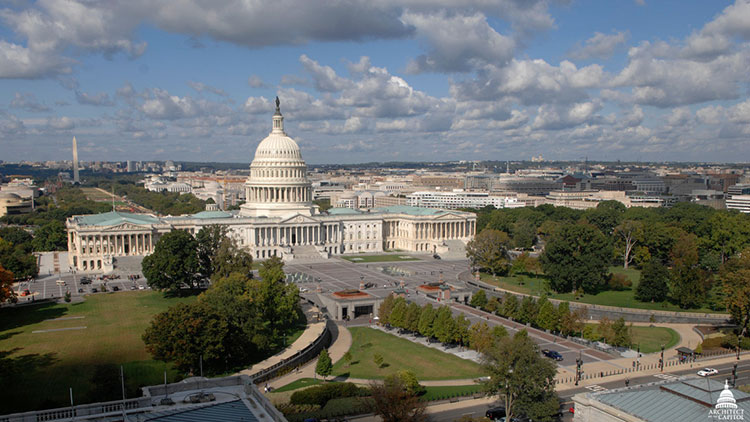Dems Seek FCC Political Disclosure Closure

The smarter way to stay on top of broadcasting and cable industry. Sign up below
You are now subscribed
Your newsletter sign-up was successful
Most of a dozen Democratic members of Congress are calling on FCC Chairman Ajit Pai to vote on clarifications to the FCC's political ad disclosure rules.
That came in a letter Wednesday (Feb. 22) to FCC Chairman Ajit Pai, according to a copy obtained by B&C/Multichannel News.
On Feb. 3, the Pai FCC set aside the clarifications and accompanying admonitions and warnings to stations, saying they should have been voted on by the commissioners rather than decided by the Media Bureau on delegated authority.
The Dems were disappointed that the clarifications were set aside, but are hopeful they will return with that commission vote. "The complaints will be returned to pending status and considered by the Commission," said acting bureau chief Michelle Carey said at the time.
The legislators also pushed for the FCC to bring "true transparency" to political files by using its authority to require disclosure of specific donors, which is something not even Democratic FCC Chairman Tom Wheeler would do despite similar calls from some of the same legislators from his own party.
Even as clarified in the now set-aside Media Bureau decision, the FCC's rules only require a list of the CEOs or board of a sponsoring entity, not the funders of such entities and their political ads.
They also put in a plug for making the political file data machine readable, something that various groups have called for, including those whose complaints the Media Bureau was resolving in issuing its decision.
The smarter way to stay on top of broadcasting and cable industry. Sign up below
The lead signatory to the letter was Rep. Ben Ray Luján, who authored legislation that would have required enhanced disclosures and machine-readable formats. as has Rep. John Yarmuth (D-Ky.)
On Jan. 6, the Media Bureau, on its own authority—rather than by a commission vote—admonished Scripps’ WCPO-TV Cincinnati for "failing to include in WCPO-TV’s political file certain information about two requests to purchase broadcast time for non-candidate issue advertisements.
Separately, in resolving complaints against a number of stations, the FCC took no enforcement action but provided clarification going forward about how political ads need to be disclosed, clarification that has been mooted for the moment.
Groups looking for better disclosures of the funders of ads, in the wake of the Citizens United Supreme Court decision that allowed corporations and unions to fund TV and radio ads in the run-up to elections, had pushed for tighter rules and complained that stations were violating the FCC disclosure rules already on the books.
Among those also signing the letter were House Communications Subcommittee Chairman Mike Doyle of Pennsylvania and former chair Anna Eshoo of California.
Contributing editor John Eggerton has been an editor and/or writer on media regulation, legislation and policy for over four decades, including covering the FCC, FTC, Congress, the major media trade associations, and the federal courts. In addition to Multichannel News and Broadcasting + Cable, his work has appeared in Radio World, TV Technology, TV Fax, This Week in Consumer Electronics, Variety and the Encyclopedia Britannica.

